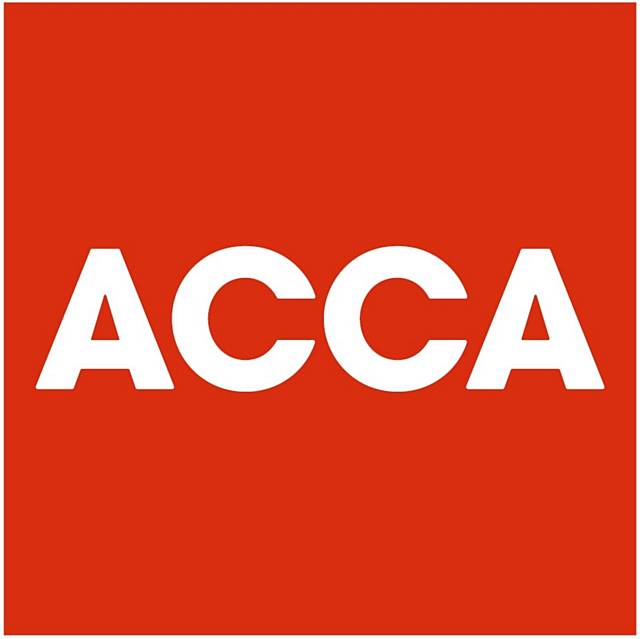UK business confidence drops to second lowest level since 2011
Date published: 17 January 2017

ACCA (Association of Chartered Certified Accountants)
The latest Global Economic Conditions Survey from ACCA (the Association of Chartered Certified Accountants) and the IMA (the Institute of Management Accountants) suggests that global business confidence in Q4 has dropped amid on-going political and economic uncertainty caused by:
- Government investment falling to its lowest level since the start of 2016, with many developed markets still firmly in austerity mode
- Changes in the political landscape stemming from the recent US election
- Uncertainty over US / China trade developments
- Concerns over Brexit as well as forthcoming European Elections - 55% of respondents view Brexit as more of risk than opportunity
The survey of over 4,500 finance professionals and business leaders worldwide has found that while the economic outlook has improved slightly in the US and China over the last quarter, the UK has hit its second lowest confidence levels since 2011.
Almost half (44%) of global respondents expressed concern over falling income due to low levels of government expenditure, with another 43 per cent reporting worsening business confidence.
Across the Eurozone the resignation of Italian Prime Minister Matteo Renzi in December 2016, combined with a series of upcoming national elections, has led to a downbeat mood while UK business confidence fell sharply ahead of Brexit negotiations.
Commenting on the findings Faye Chua, Head of Business Insights at ACCA, said: “Current political uncertainty is clearly having an impact on global business confidence. In the US the Trans-Pacific Partnership is unlikely to be ratified while likely restrictions on trade with key markets including China and Mexico are also major factors here. In Europe, uncertainty over the outcome of elections in the Netherlands, France and Germany – which could lead to major policy shifts for regional trade and the future direction of the Eurozone – all contribute to a gloomy outlook going into 2017.
“However, it is not all bad news. Despite these concerns, the global economy may be on course for growth in 2017 as China responds positively to its economic stimulus programme and the US maintains a partial recovery.”
Faye Chua says that the ‘Brexit effect’ is impacting on confidence levels, she said: “Confidence in the UK has also slumped to the lowest level in six years, with over half of respondents (55%) seeing Brexit as more of a risk than an opportunity. Capital, employment and investment indexes also fell, possibly because firms are delaying decisions until the political and economic picture around Brexit becomes clearer.
While retail spending has remained robust, and the fall in Sterling has boosted exports, it is likely that economic growth will slow in 2017 as a result of the ‘Brexit effect’ on confidence.
In the Eurozone there are also growing fears over a potential banking crisis in Italy, Greece and Cyprus. With major national elections in the Netherlands, France and Germany this year, this political and economic uncertainty has contributed to the lowest levels since 2012.”
Faye Chua says that this research points towards a ‘new Age of Uncertainty’, she added: “A strengthening US dollar could have significant impacts for trade-dependent economies such as Taiwan, Hong Kong, Singapore and Vietnam as well as impact on capital investments for emerging markets such as South Africa, Colombia and Turkey. Yet emerging markets are also less dependent on the dollar than before, so we are unlikely to see a repeat of the crises of the 1990s.
“What our findings highlight is that businesses and economic forecasters feel that 2017 could mark a new Age of Uncertainty for the global economy. On a positive note, some of the underlying strengths of OECD and non-OECD economies suggest growth can be maintained and even improved over the next few years.
“However, there is no escaping that this is a challenging economic environment. There are prospects of decent growth but risks remain.”
Fieldwork for the Q4 2016 GECS took place between 24 November and 13 December 2016 and attracted 4,551 responses from ACCA and IMA members around the world, including more than 350 CFOs.
Do you have a story for us?
Let us know by emailing news@rochdaleonline.co.uk
All contact will be treated in confidence.
Most Viewed News Stories
- 1Royton haulage firm fined after Rochdale dad went to work and didn’t come home
- 2Six men arrested in Rochdale child exploitation investigation
- 3Suspended council candidate was ‘politically naive’ for appearing in George Galloway video, leader...
- 4Rochdale church to host Camerados public living room
- 530 years of the GEM Appeal, a Rochdale-founded charity that has raised millions and changed the...
To contact the Rochdale Online news desk, email news@rochdaleonline.co.uk or visit our news submission page.
To get the latest news on your desktop or mobile, follow Rochdale Online on Twitter and Facebook.



